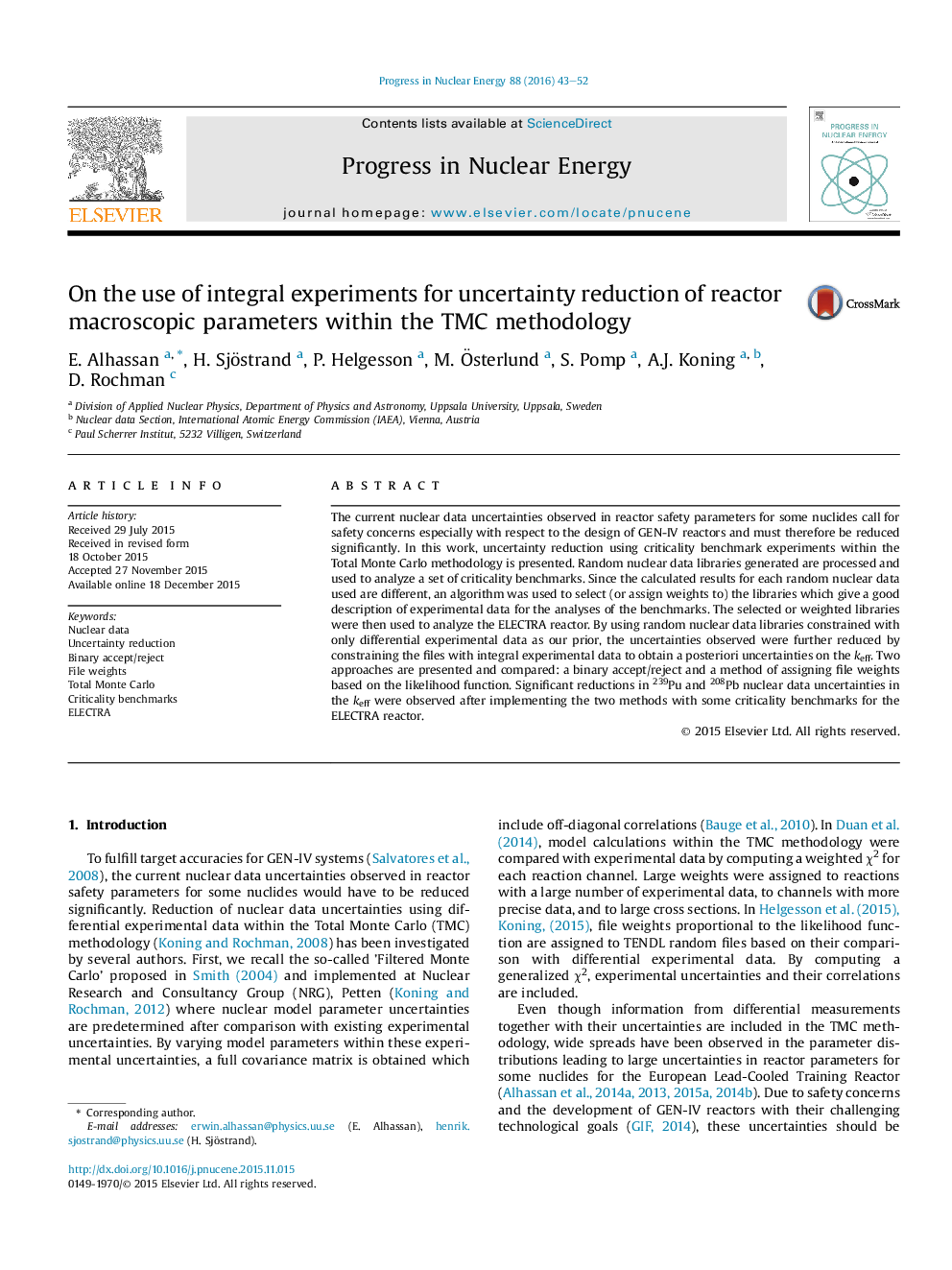| Article ID | Journal | Published Year | Pages | File Type |
|---|---|---|---|---|
| 1740374 | Progress in Nuclear Energy | 2016 | 10 Pages |
•Uncertainty reduction using integral benchmark experiments within the TMC methodology is investigated.•A binary accept/reject and a method of assigning file weights based on the likelihood function are presented.•Significant reduction in nuclear data uncertainties were obtained for some isotopes for the ELECTRA reactor.
The current nuclear data uncertainties observed in reactor safety parameters for some nuclides call for safety concerns especially with respect to the design of GEN-IV reactors and must therefore be reduced significantly. In this work, uncertainty reduction using criticality benchmark experiments within the Total Monte Carlo methodology is presented. Random nuclear data libraries generated are processed and used to analyze a set of criticality benchmarks. Since the calculated results for each random nuclear data used are different, an algorithm was used to select (or assign weights to) the libraries which give a good description of experimental data for the analyses of the benchmarks. The selected or weighted libraries were then used to analyze the ELECTRA reactor. By using random nuclear data libraries constrained with only differential experimental data as our prior, the uncertainties observed were further reduced by constraining the files with integral experimental data to obtain a posteriori uncertainties on the keff. Two approaches are presented and compared: a binary accept/reject and a method of assigning file weights based on the likelihood function. Significant reductions in 239Pu and 208Pb nuclear data uncertainties in the keff were observed after implementing the two methods with some criticality benchmarks for the ELECTRA reactor.
